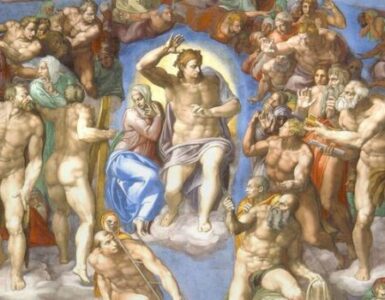Despite the fundamental importance of the natural law, it is often neglected, shunned, or misunderstood. We have a certain connaturality with the natural law so that a person can live and profit by it without having to philosophize. Nonetheless, it is important to shed light on the natural law, especially for those for whom it could be a great benefit.
All animals, including human beings, have inclinations or tendencies which naturally incline them to seek food, to reproduce, and to remain in existence. Human beings have special inclinations to seek love, truth, meaning, and God. As Aristotle states, “All men by nature desire to know.” These inclinations represent the first step in understanding the natural law. By fulfilling these inclinations, man himself becomes fulfilled.
Man is free to follow or not to follow these natural inclinations. The path he takes in following them is coextensive with morality. And morality is nothing more than a person living in a way that is harmonious with his nature and the various inclinations that arise from that nature.
Reason plays a critical role in adhering to the natural law for it judges whether or not actions are congruent with the natural law. The natural law provides a pathway that leads to the fulfillment of the human person. In other words, it shows the way to his natural end. This end or fulfillment is tied to natural inclinations in such a way that he has a right to it. This concept of a natural right is reflected in the Declaration of Independence: “We hold these truths to be self-evident, that all men are created equal, that they are endowed by their Creator with certain unalienable rights, that among these are life, liberty, and the pursuit of happiness.”
The morality that is based on the natural law is distinguished from various modalities that are imposed from without and, consequently, are alien to the nature of the human being. Because the natural law applies to all human beings, it is universal. It is a way in which all human beings can be both true to themselves and true to each other.
The natural law is comprehensive in that it harmonizes freedom, reason, the will, rights, and man’s proper end. In addition, it includes duty. Each person has a duty to live by the natural law in order to be truly himself and to live in harmony and justice with others. The natural law, therefore, is natural, objective, practical, fulfilling, and universal.
Throughout history, most of the contributions toward developing an understanding of the natural law came from Catholic thinkers, although they owe a sizeable debt to Plato, Aristotle, and Cicero. St. Albert the Great and St.Thomas Aquinas in the Middle Ages, and Jacques Maritain, Germain Grisez, John Finnis, Robert George and others in the modern era have put together a comprehensive notion of the natural law.
The natural law is an unwritten law. It is imprinted on the hearts of human beings.
It is the hope of this writer that the preceding words are sufficiently clear so that one sentence from Jacques Maritain’s “Man and the State,” though somewhat challenging, makes perfect sense: The natural law is “an order or a disposition that the human reason may discover and according to which the human will must act to accord itself with the necessary ends of the human being.”
The natural law should be most appealing to anyone who cherishes freedom, for it begins with freedom of choice and is oriented toward freedom of fulfillment.
Because of its richness, the natural law is inexhaustible. Nevertheless, whatever light one can shine on the natural law is greatly to our advantage.
✠












